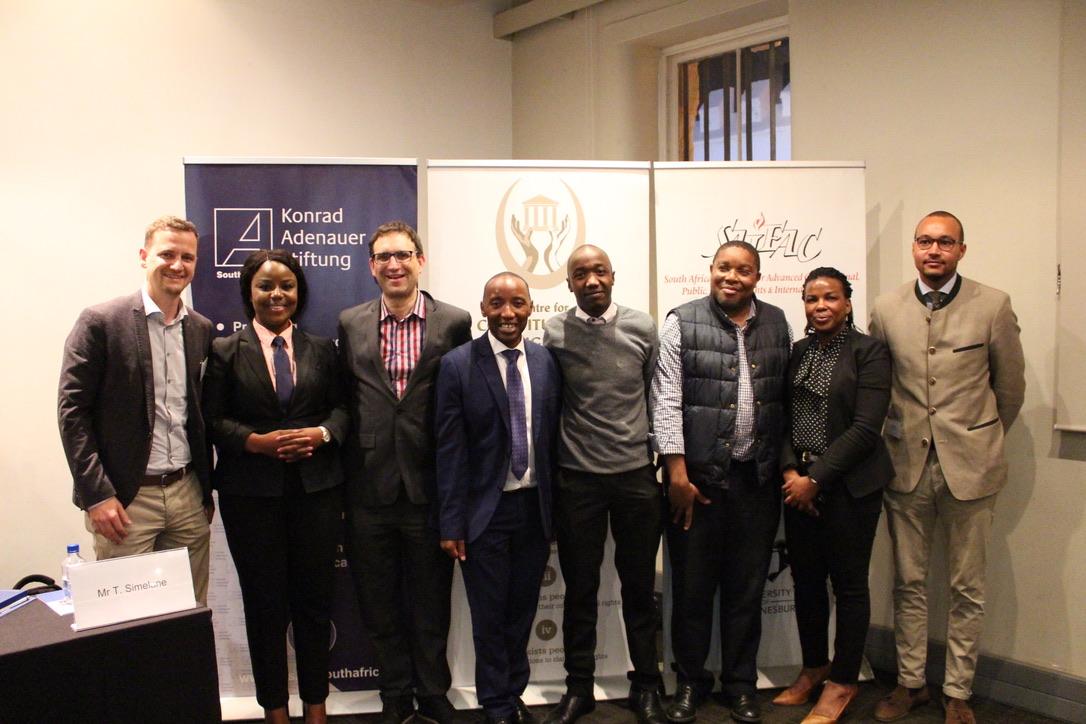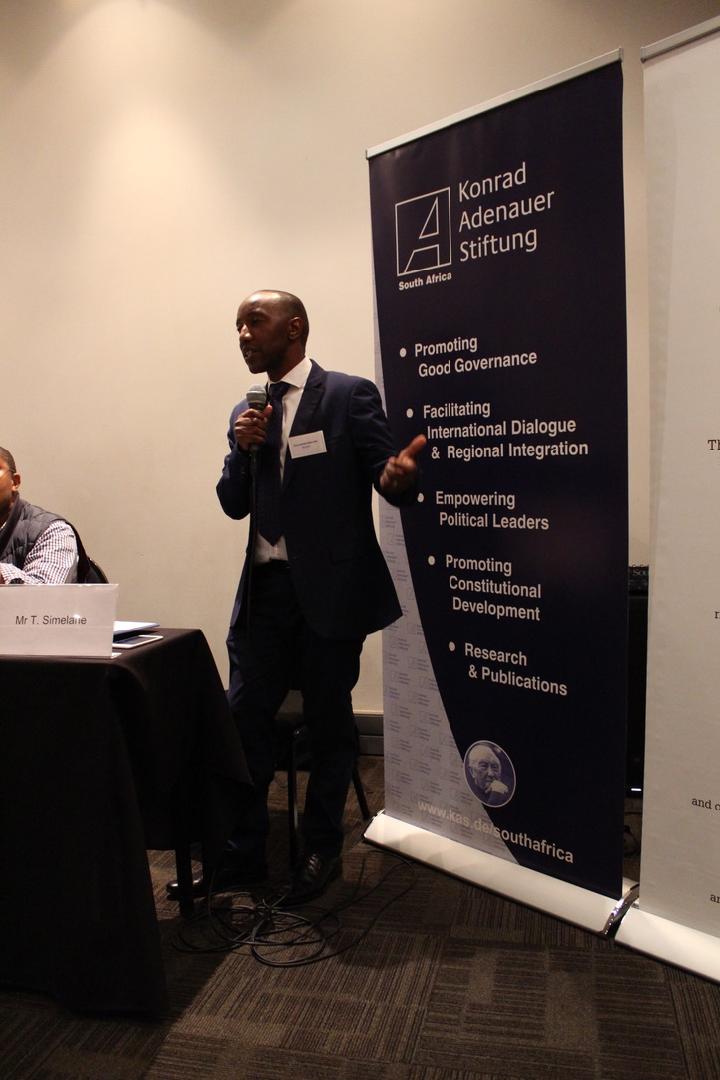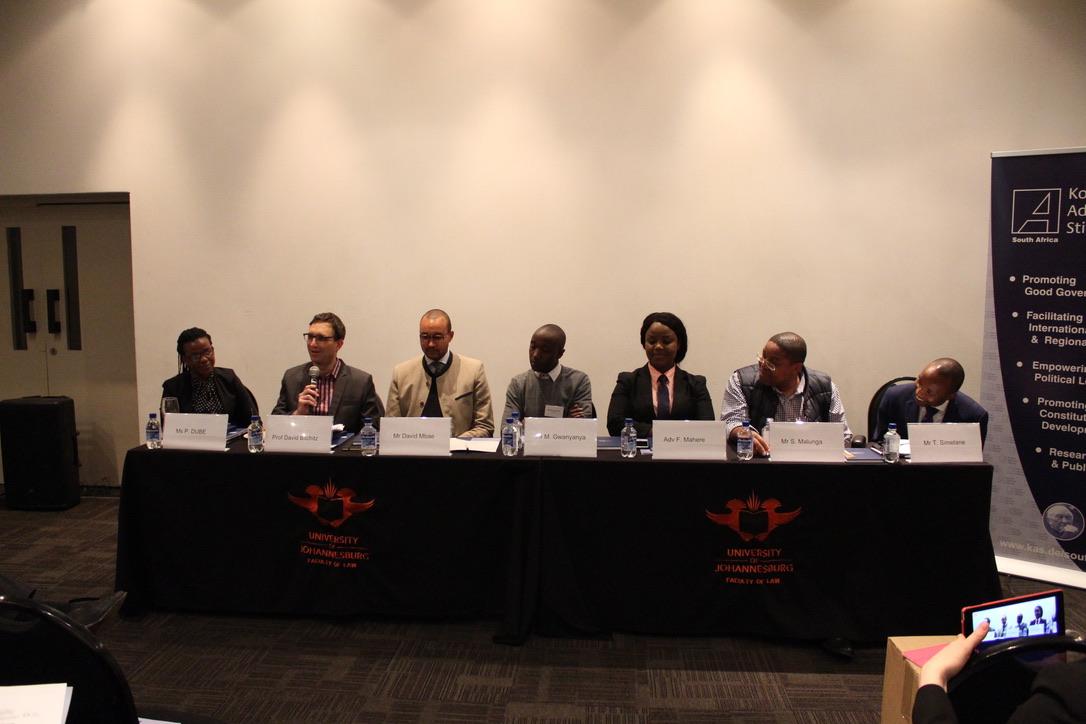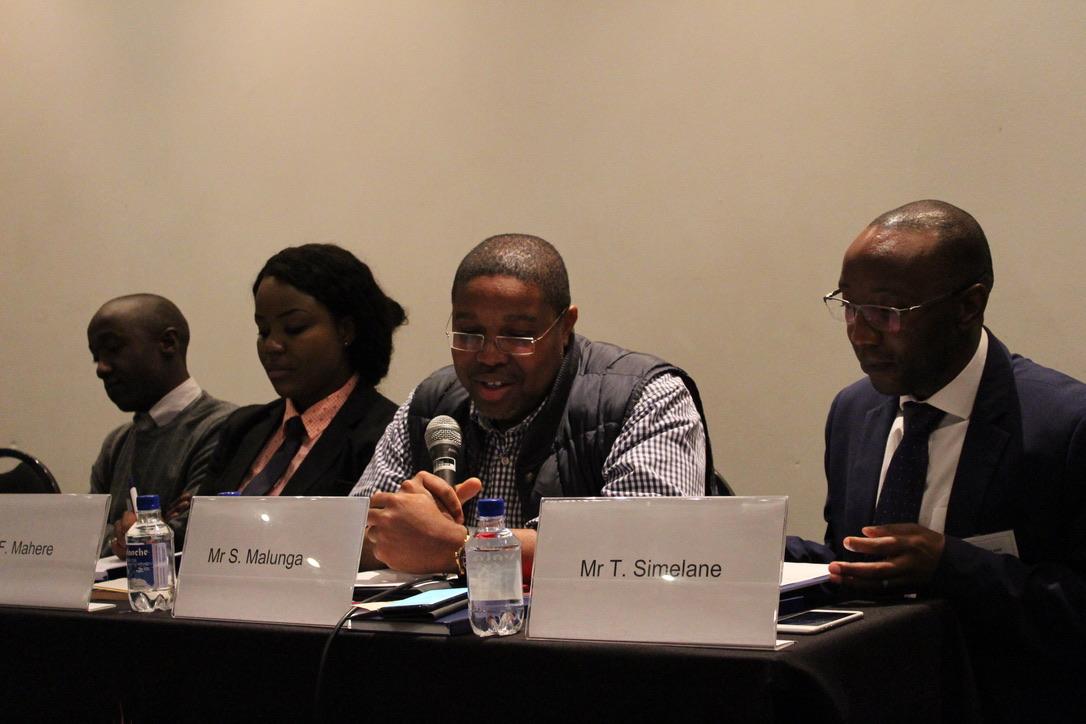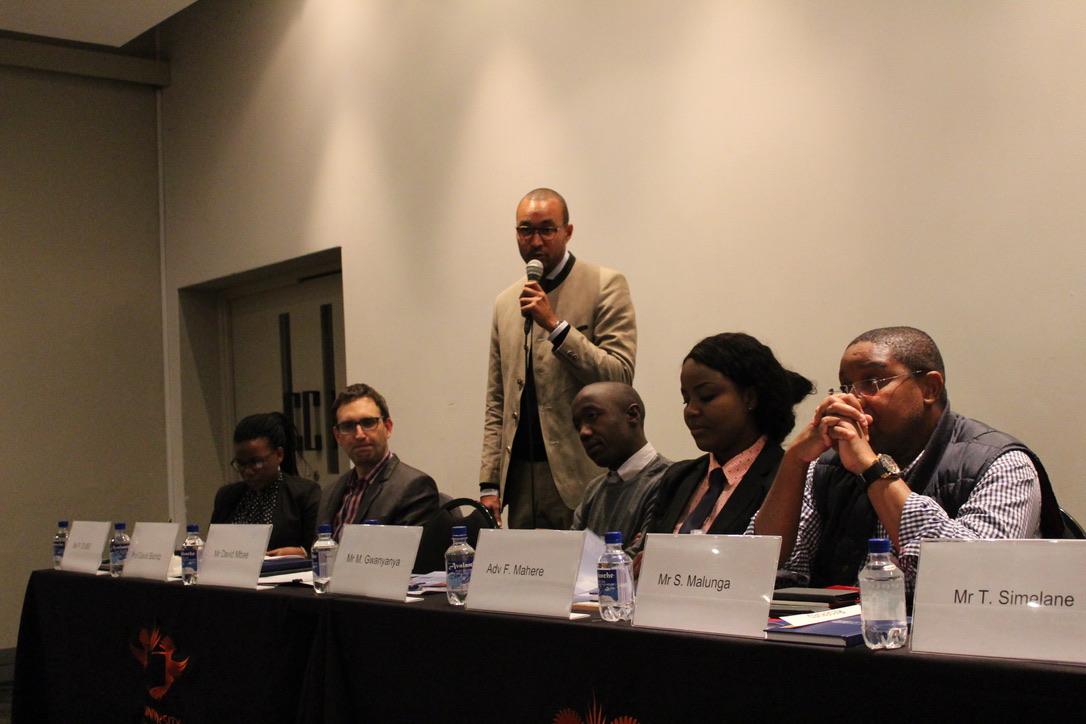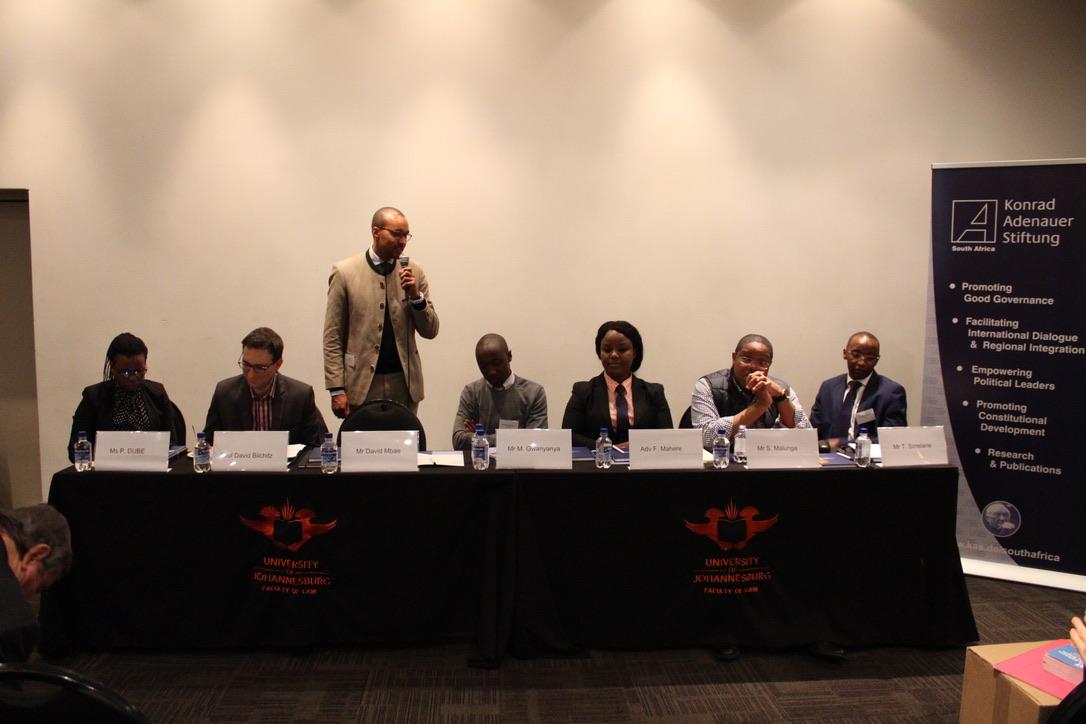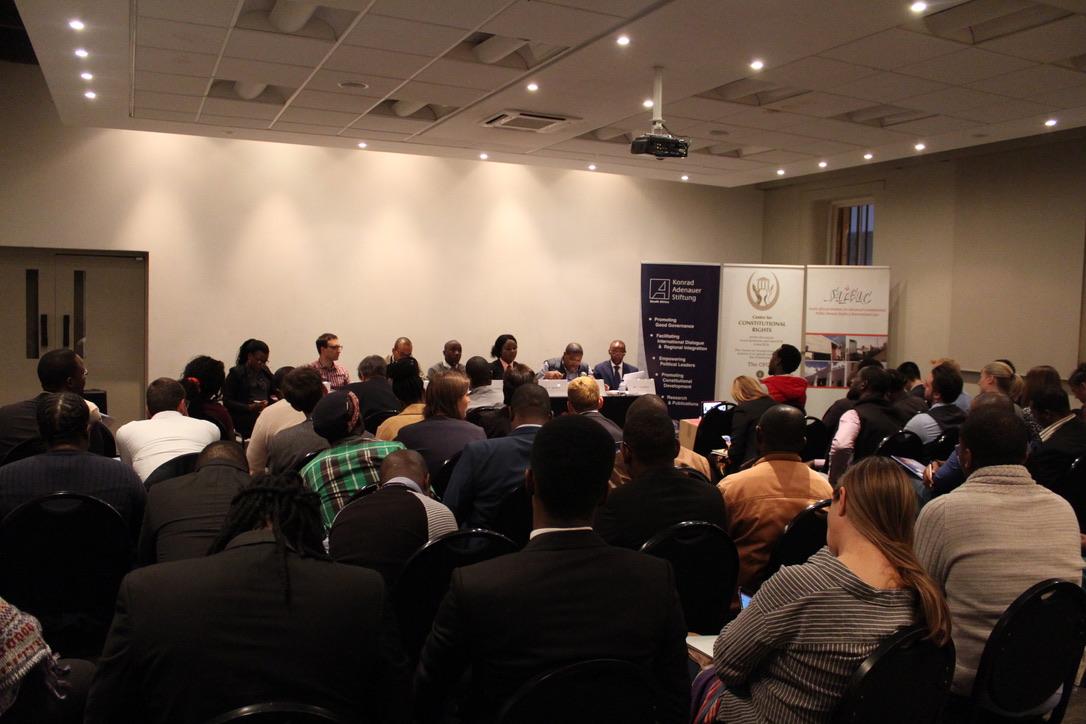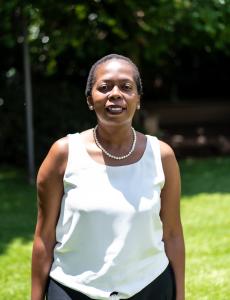Whither Zimbabwe after the Elections? - Foundation Office South Africa
On 21 August, the Centre for Constitutional Rights (CFCR) and the South African Institute for Advanced Constitutional, Public, Human Rights and International Law (SAIFAC), a Centre of the University of Johannesburg with the support of the Konrad Adenauer Foundation South Africa organized a discussion session on the Zimbabwe general elections which took place on 30 July 2018. The public event, which was hosted at the historic location of Constitution Hill, was attended by over 50 participants consisting representatives from the private sector, the academia, as well as civil society organizations and ordinary citizens of South Africa and Zimbabwe. The overarching aim of the discussion was to examine the “free and fair” factor of the elections and identify the effects thereof on Zimbabwe’s so-called new dawn. The event took place during the week of the Constitutional Court case where Movement for Democratic Change (MDC) challenged the electoral outcome.
The event started with welcoming remarks from Mr. David Mbae (Country Representative, Konrad Adenauer Foundation Zimbabwe) and Professor David Bilchitz (Director, SAIFAC). Mr. Mbae opened up by expressing his gratitude towards the organizers: SAIFAC, CFCR and KAS South Africa. He introduced the Konrad Adenauer Foundation in Zimbabwe as well as in South Africa, its worldwide engagement with the aim of promoting democracy. Regarding the recent elections in Zimbabwe, Mr. Mbae mentioned that he is interested in the Constitutional Court outcome and the future of the country. Since the removal of former President Robert Mugabe, positive changes for journalists and civil society have been observed. However, there is still a lot of work to be done post-election. Despite the disappointment with the violence on the streets of Harare during the elections, he expressed the hope that Zimbabwe would move forward and its people could finally take the future in their own hands. Prof. David Bilchitz also welcomed the participants and thanked the co-host CFCR as well as the KAS for organizing this event and the Constitution Hill for offering the excellent location. He hoped that the panelist’s presentations will help to raise the awareness of people in South Africa on the current affairs in Africa.
The discussion was divided into two parts. First, the panelists covered different themes and expressed their thoughts on the topic around the elections. The audience then also had the chance to give make comments and ask questions. The discussion was moderated by Mr. Thulasizwe Simelane (Senior Political Journalist, eNCA).
Mr. Siphosami Malunga (Open Society Initiative for Southern Africa) started his talk by introducing the goals of his organization, the important role yet shrinking space for civil society in Southern Africa due to the rise of autocratic leaders. The first elections in post-Mugabe era were a joyful event for many people. However, the involvement of the military in politics and its relation to Zimbabwe African Union –Patriotic Front (ZANU-PF) has stirred up many controversies. These democratic elections are crucial for the achievement of the political mandate after the coup in November 2017. On this point, Mr. Malunga mentioned six critical points for a fair and free election in Zimbabwe: a verified voter’s roll, clean and secured ballot paper, a free and safe pre-election environment for the candidates, the exclusion of the military’s involvement in politics, access to state media for the rural population and the independence of the Zimbabwean Electoral Commission (ZEC).
The second speaker was Adv. Fadzayi Mahere (Advocate, Independent Candidate for Parliament of Zimbabwe and Law Lecturer at the University of Zimbabwe). Adv. Mahere approached the topic not only as a law advocate, a candidate for the Parliament but also as a young hopeful Zimbabwean citizen. Zimbabwe “has got all the ingredients it required to succeed, is the nation that has succeeded in the past and yet despite all these gifts, it continued to fail, and to fail spectacularly”. The country cannot constantly be in transition but has to move forward. Once again, the issue of the military’s reckless involvement in politics and the economy was addressed as a growing problem that has resulted in a serious violation of the Constitution, public order and human rights. The second point Adv. Mahere touched on was the role of the current President Emmerson Mnangagwa as “a reformer” as portrayed in international media. A reformer should be the one, who not only make utterances but also uses actions to back them up. The problem lies within the motives of the termination of violence from the ED government towards its citizens, which stems from the intention to preserve a peaceful image of Zimbabwe, yet not from the will to protect the people. Moreover, the property rights framework from the Mugabe’s Presidency still remained intact and had not been re-examined. With that being said, Mnangagwa did not seem to appear for the title of a reformer. On the other hand, the Zimbabwean Parliament which consisted of a majority from ZANU-PF proved to be incompetent and lacked a balancing mechanism which a strong Parliament should offer. The last point was her concern about the lack of a grand vision of the Government of Zimbabwe with its people in the centre, which is essential for a long-term nation building project.
The third speaker, Mr. Manson Gwanyanya (Researcher, Legal Resources Centre) continued the discussion with his speech about the role of the Zimbabwe Electoral Commission (ZEC) in a “free and fair” election. ZEC has all the power to ensure a free and fair election for Zimbabwean citizens. ZEC is assigned by the Constitution to prepare, supervise and conduct elections of the President and Parliament as well as ensure that these elections are conducted efficiently, freely, fairly, transparently and in accordance with the laws of Zimbabwe. However, there was a number of incidents, in which the free and fair procedure of the election was not complied with and an intervention of ZEC was also absent. Based on these evidences, Mr. Gwanyanya criticized the conduct of ZEC and concluded that the elections were not completely free and fair.
Thereafter, Mr. David Mbae brought to the discussion his view on the ongoing fight between the factions inside the Zimbabwean parliament after the Mugabe-era. Many newly elected members of ZANU-PF in the Parliament belong to G40, the faction that stands against many of Mr. Mnangagwa’s pro-economic growth policies. On the other hand, MDC did not use the opportunity to show that they are a real alternative and form a united front to seize the opportunity. On this point, Mr. Mbae suggested that a good cooperation is desirable, yet an effective opposition is also necessary for the current situation in Zimbabwe. The way in which politics is conducted in Zimbabwe and the unprofessional behaviour some political elites showed were also of concern. Additionally, the role of regional and international organizations, such as the African Union, Southern African Development Community and South African government, could have been an intervention in conducting a free and fair election, an opinion that Dr. Bilchitz also shared. In conclusion, the question “Do we want a real democracy or just economic development?” was posed and the goal of supporting democracy of the KAS was once again emphasized.
The discussion was then opened up to the audience. Many participants as well as speakers were interested in the decision of the Constitutional Court about the election victory of Emmerson Mnangagwa and its aftermath. Another point was mentioned was the professionalism of candidates and election campaigns, which has not proved to be adequate. Despite much concern about the incidents which happened around the elections, the participants and speakers all hoped for a better future and a responsible government for Zimbabwe.
Lastly, Ms. Phephelaphi Dube (CFCR) officially closed the discussion by expressing her gratitude towards the Konrad Adenauer Foundation, SAIFAC, Constitution Hill, the speakers and the participants whose active engagement during the panel discussions was highly welcomed and much appreciated.
Shortly after this discussion, on the 24th of August, the Zimbabwe’s Constitutional court unanimously rejected the MDC’s opposition challenge to Emmerson Mnangagwa’s election victory. Emmerson Mnangagwa was inaugurated as President of Zimbabwe on 26 August 2018.



